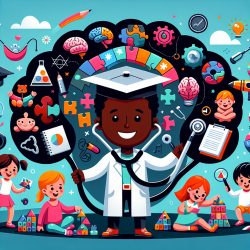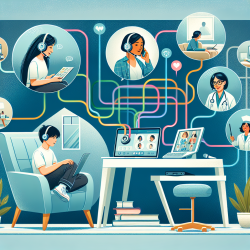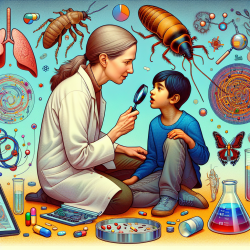Introduction
Engaging medical students in psychiatry has been a persistent challenge, with recruitment in the field lagging behind other medical specialties. A recent study titled "Enrichment activities in the medical school psychiatry programme – could this be a key to engaging medical students in psychiatry? A study from a high secure forensic psychiatric UK hospital" offers valuable insights into how enrichment activities can positively influence students' attitudes towards psychiatry.
Study Overview
The study conducted at Broadmoor Hospital, a high-secure forensic psychiatric facility in the UK, involved medical students from various universities. It aimed to assess how a one-day visit to the facility impacted students' attitudes towards psychiatry using the 30-item Attitudes Toward Psychiatry (ATP-30) survey. The results were compelling, showing a significant increase in positive attitudes towards psychiatry post-visit.
Key Findings
- Positive Attitude Shift: The study revealed a significant increase in positive attitudes towards psychiatry after the one-day visit, as measured by the ATP-30 survey.
- Influence of Clinical Placements: Clinical placements were identified as the most influential factor in shaping students' career considerations in psychiatry.
- Role of Enrichment Activities: The study highlighted the potential of enrichment activities, such as visits to specialized psychiatric units, to enhance students' perceptions and interest in psychiatry.
Implications for Practitioners
For practitioners in the field of speech-language pathology and other medical educators, these findings underscore the importance of incorporating enrichment activities into medical training. Here are some actionable steps:
- Integrate Enrichment Activities: Consider organizing visits to specialized units or incorporating hands-on experiences that allow students to engage with patients and professionals in a real-world setting.
- Focus on Positive Role Models: Encourage interactions with inspiring and enthusiastic role models in psychiatry to foster a more favorable view of the specialty.
- Address Stigma: Actively work to combat stigma associated with psychiatry by promoting open discussions and providing accurate information about the field.
Encouraging Further Research
The study also opens avenues for further research. Practitioners and educators can explore long-term impacts of enrichment activities on career choices and attitudes towards psychiatry. Investigating diverse enrichment formats and their effectiveness across different demographics can provide deeper insights.
Conclusion
Enrichment activities in medical education, particularly in psychiatry, hold the potential to transform students' perceptions and interest in the field. By integrating these activities into the curriculum, educators can inspire the next generation of psychiatrists and mental health professionals, ultimately benefiting patient outcomes.
To read the original research paper, please follow this link: Enrichment activities in the medical school psychiatry programme – could this be a key to engaging medical students in psychiatry? A study from a high secure forensic psychiatric UK hospital.










